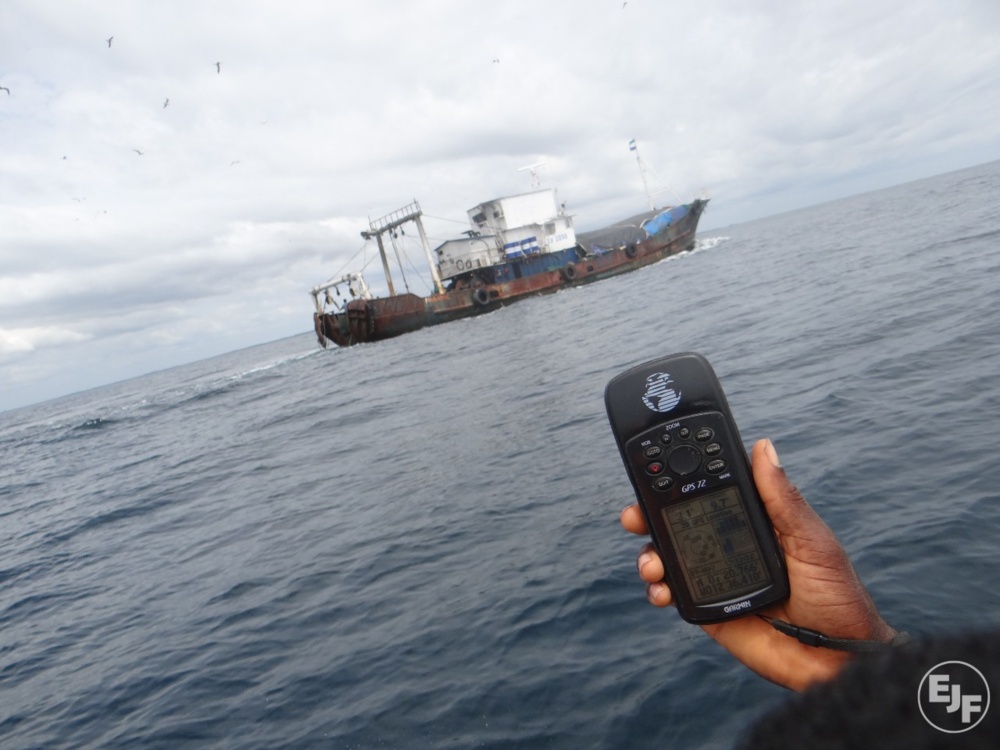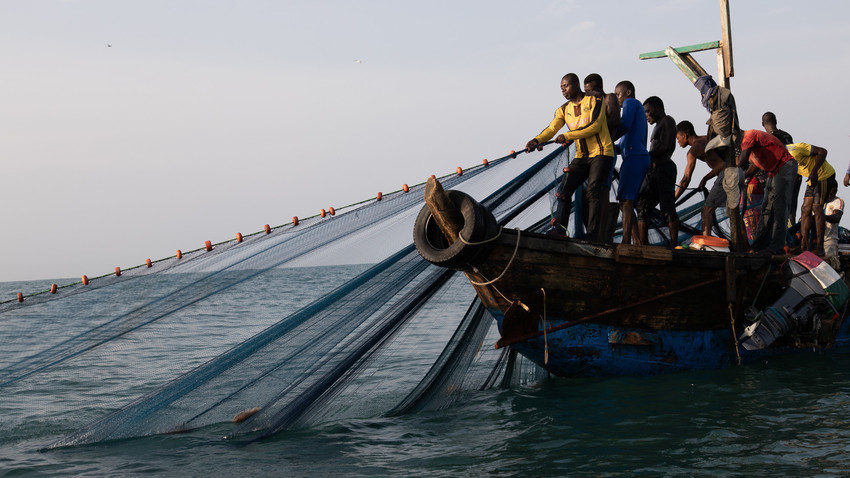
Red flags: The story of the Mahawa and transparency standards in fishing
The fishing communities of West Africa are becoming vigilant against the scourge of illegal trawlers. But to bring a final end to the destruction, transparency in the industry must be a priority for governments.
In the past, the people of Bonthe, southern Sierra Leone, have had to look on helplessly as industrial trawlers illegally take fish in the inshore zone reserved for local canoes.
But now they can take action.
Last November, A, who had been given training by EJF on gathering evidence of illegal industrial fishing, heard talk of a trawler in the inshore exclusion zone. Enlisting the help of the canoe fishers, he put to sea, getting close enough to take good quality, geotagged photos.
A then sent the images to EJF head office, and we began to uncover the full story.
The Mahawa is a 135 gross tonne trawler, and although it is operated by a Korean-owned company based in Sierra Leone, the country’s latest licence list showed that the vessel was registered in neighbouring Guinea.
After being alerted by EJF, the Guinean authorities called the vessel back to port and – by sharing information with Sierra Leonean counterparts – discovered that it was operating under both Guinean and Sierra Leonean flags.
As a result, Mahawa’s owners were fined by the Guinean government. Sierra Leonean authorities, for their part, officially removed the vessel from the country’s registry.
Mahawa’s story is far from rare, and shows how illegal operators use the shocking lack of transparency in the fishing industry to their own ends.
Criminal operators create as much confusion as possible around vessel identities and change flags regularly, either to escape sanction or avoid rules such as quotas. Since only a very few countries have made their fishing vessel registries public, verifying the registration of vessels is difficult, if not impossible.
Some owners go as far as removing their boats from all registries, becoming stateless to avoid oversight at all costs.
Here, thanks to the sharp eyes and quick reactions of the local community, Mahawa’s case was revealed. But had both countries’ fishing vessel registries been public, this situation would have not occurred in the first place.
In fact, because it is over 100 gross tonnes, the Mahawa is eligible for a unique International Maritime Organization number, a registration number that stays with vessels from shipyard to scrapyard, regardless of flag changes.
If either Guinea or Sierra Leone had made these ID numbers mandatory, the Mahawa could have been added to the UN Global Record of Fishing Vessels currently under development.
That would have meant the flag of the vessel could have been verified with the click of a mouse.
EJF is asking all states to adopt ten simple, low-cost transparency measures that are well within the reach of any country, and could play a pivotal role in the battle against illegal fishing and human rights abuse in the sector.
We have also enlisted the help of our supporters to call on supermarkets to use their own influence to ensure that their supply chains are free of any trace of illegal practices. So far three major retailers have signed EJF's Charter for Transparency, accounting for over half of UK grocery sales. We hope many more will follow.
A case like Mahawa’s will not be the last, but it could become increasingly uncommon if more countries commit to bringing fisheries out of the shadows.
- Sign the letter to supermarkets
SIGN UP FOR OUR EMAILS AND STAY UP TO DATE WITH EJF

